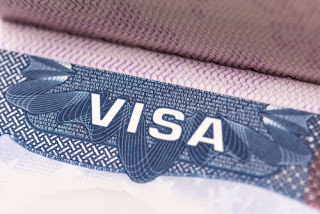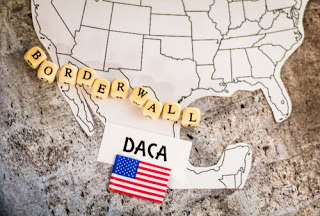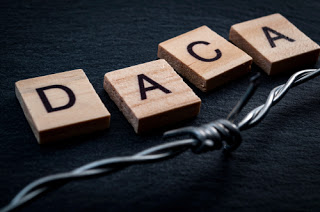 Introduction
Introduction
On February 9, 2018, the U.S. Department of State (DOS) published the March 2018 Immigrant Visa Bulletin [PDF version]. Eleven days later, the United States Citizenship and Immigration Services (USCIS) determined that the beneficiaries of approved family-sponsored immigrant visa petitions must use the filing date charts from the March 2018 Visa Bulletin whereas the beneficiaries of approved employment-based immigrant visa petitions must use the final action date charts [PDF version].
In this article, we will examine the relevant charts from the DOS and USCIS for beneficiaries of approved immigrant visa petitions in March 2018. We will also go through news and notes included with the March 2018 visa bulletin.
To learn more about the subject generally, please see our articles on how to use the Immigrant Visa Bulletin as an adjustment of status applicant [see article] and the differences between final action dates and dates for filing [see article]. Please also see our index of Immigrant Visa Bulletin articles [see article].
Furthermore, we did not publish an article on the February 2018 Visa Bulletin. For reference, you may see the February 2018 Visa Bulletin here: [PDF version].
Family-Sponsored Cases
The USCIS determined that individuals who are seeking adjustment of status based on an approved family-sponsored immigrant visa petition must use the dates for filing on the March 2018 Visa Bulletin. This decision is favorable to family-sponsored applicants because, in most cases, the filing date cutoffs are later than the final action date cutoffs.
In order for the beneficiary of an approved family-sponsored petition to be eligible for adjustment of status in March 2018, his or her priority date must be earlier than the applicable filing date for his or her preference category and chargeability area. In family-sponsored cases, the priority date is generally the date on which the petition was properly filed with the USCIS.
The following chart [see here] contains the filing dates for family-sponsored cases in March 2018.
For reference, the following chart [see here] contains the final action dates for family-sponsored cases in March 2018.
Employment-Based Cases
The USCIS determined that beneficiaries of approved employment-based immigrant visa petitions who are seeking adjustment of status must use the final action dates from the March 2018 Visa Bulletin.
In order for the beneficiary of an approved employment-based immigrant visa petition to be eligible to file for adjustment of status in March 2018, his or her priority date must be prior to the applicable final action cutoff date for his or her preference category and chargeability area. In employment-based cases where labor certification is required, the priority date will generally be the date on which the labor certification application was approved by the U.S. Department of Labor. In employment-based cases where labor certification is not required, the priority date is generally the date on which the petition was properly filed with the USCIS.
The following chart [see here] contains the final action dates for employment-based cases in March 2018.
A final action date of “C” means that any individual with an approved immigrant visa petition in the applicable preference category and chargeability area will be able to apply for adjustment of status (if otherwise eligible for adjustment of status) in March 2018.
Two of the employment-based categories — 4th preference certain religions workers (SR) and 5th preference (IR and R5) — are scheduled to expire on March 23, 2018. If Congress does not take action in time, no individuals in the SR category will be able to be admitted after midnight, March 22, 2018. Furthermore, no visas would be issued overseas or action taken in adjustment of status cases after March 23, 2018, in the IR and R5 categories. If these categories are allowed to lapse, the final action dates will be set to “unavailable.”
Notably, the SR, IR, and R5 categories were allowed to lapse during the brief government shutdown in January. It is likely that Congress will reach an agreement on a broader spending bill prior to March 23, 2018. However, it is of course possible that the authorization for the programs in question may again be allowed to lapse for only a short period. In any event, we expect that these programs will either be reauthorized as part of a broader spending agreement prior to March 23, 2018, or shortly thereafter. Individuals who may be affected by the uncertainty should consult with an experienced immigration attorney for case-specific guidance.
News for Vietnam Employment-Based Fifth Preference Category
The DOS stated that “[c]ontinued heavy applicant demand is expected to result in the Vietnam Employment Fifth preference category reaching the per-country annual limit during March.” In the event that Vietnam reaches the limit, Vietnam Employment Fifth Preference will become subject to a distinct final action date for the remainder of fiscal year 2018.
Special Immigrant Translators
The DOS continues to expect to reach the annual limit of 50 Special Immigrant Visas in the SI category in early 2018. For this reason, DOS maintained a March final action date of April 22, 2012, for the SI category. The DOS expects the SI category final action date to become unavailable in coming months. The final action date for the SQ Special Immigrant Visa category for certain Iraqi and Afghan nationals employed by or on behalf of the U.S. government in Iraq or Afghanistan remains current.
Conclusion
Those who intend to apply for adjustment of status based on an approved immigrant visa petition in one of the preference categories should stay abreast of developments with the Immigrant Visa Bulletin. It also provides those who intend to seek visas through consular processing of a general idea of when their interviews may be scheduled and when final action may be taken on their applications. Those seeking immigrant visas are well-advised to consult with an experienced immigration attorney throughout the entire process.
Please visit the nyc immigration lawyers website for further information. The Law Offices of Grinberg & Segal, PLLC focuses vast segment of its practice on immigration law. This steadfast dedication has resulted in thousands of immigrants throughout the United States.
 The United States Citizenship and Immigration Services (USCIS) issued a reminder that it will begin accepting petitions under the Commonwealth of the Northern Mariana Islands (CNMI)-Only Transitional Worker (CW1) program subject to the fiscal year 2019 CW1 cap on April 2, 2018 [PDF version].
The United States Citizenship and Immigration Services (USCIS) issued a reminder that it will begin accepting petitions under the Commonwealth of the Northern Mariana Islands (CNMI)-Only Transitional Worker (CW1) program subject to the fiscal year 2019 CW1 cap on April 2, 2018 [PDF version]. On March 19, 2019, the United States Senate confirmed Kevin McAleenan as the new Commissioner of the United States Customs and Border Protection (CBP) by a vote of 77-19.[1] McAleenan had been serving as Acting Commissioner of the CBP since President Donald Trump took office on January 20, 2017. President Trump nominated McAleenan to become the permanent Commissioner of the CBP on March 30, 2017 [
On March 19, 2019, the United States Senate confirmed Kevin McAleenan as the new Commissioner of the United States Customs and Border Protection (CBP) by a vote of 77-19.[1] McAleenan had been serving as Acting Commissioner of the CBP since President Donald Trump took office on January 20, 2017. President Trump nominated McAleenan to become the permanent Commissioner of the CBP on March 30, 2017 [ On September 5, 2017, then-acting Secretary of Homeland Security Elaine Duke published a memorandum providing for the draw-down of the Deferred Action for Childhood Arrivals (DACA) program [
On September 5, 2017, then-acting Secretary of Homeland Security Elaine Duke published a memorandum providing for the draw-down of the Deferred Action for Childhood Arrivals (DACA) program [ On February 26, 2018, the Supreme Court of the United States denied the Government’s petition for a writ of certiorari before judgment in Dept. of Homeland Sec., v. Regions of Univ. of Ca, (No. 17-1003). You may see the denial
On February 26, 2018, the Supreme Court of the United States denied the Government’s petition for a writ of certiorari before judgment in Dept. of Homeland Sec., v. Regions of Univ. of Ca, (No. 17-1003). You may see the denial  Introduction
Introduction On February 13, 2018, Judge Nicholas G. Garaufis of the United States District Court for the Eastern District of New York issued a nationwide preliminary injunction against the rescission of the Deferred Action for Childhood Arrivals (DACA) program [
On February 13, 2018, Judge Nicholas G. Garaufis of the United States District Court for the Eastern District of New York issued a nationwide preliminary injunction against the rescission of the Deferred Action for Childhood Arrivals (DACA) program [ Introduction
Introduction On February 8, 2018, the Executive Office for Immigration Review (EOIR) announced the swearing in of five new immigration judges [
On February 8, 2018, the Executive Office for Immigration Review (EOIR) announced the swearing in of five new immigration judges [